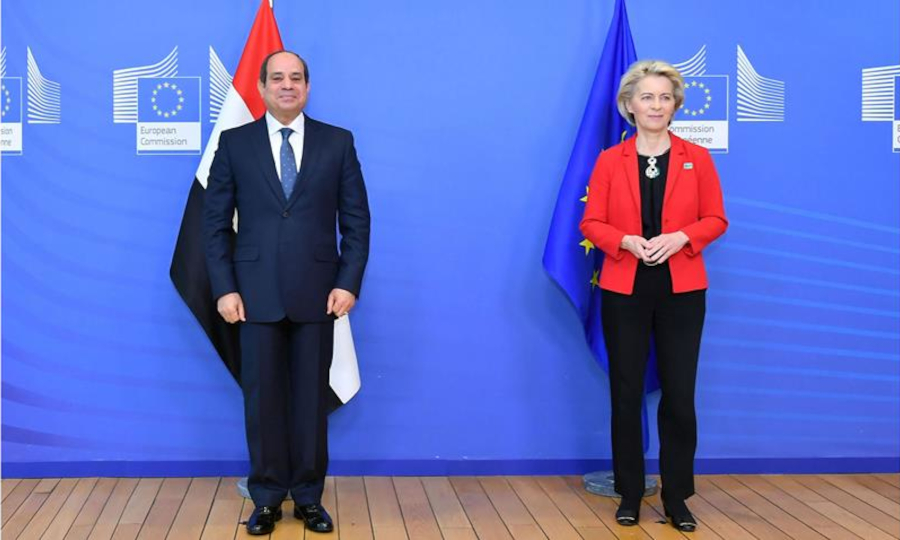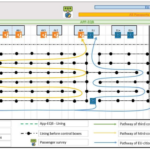Following Tunisia’s example, the EU Commission wants a “partnership against migrant smuggling” with Egypt. The Gaza war might has given urgency to these plans.
The EU Commission wants to agree an “operational partnership to combat migrant smuggling” with the government in Cairo this year. This can be seen in the annex to a letter published by the British civil rights organisation Statewatch. In it, Commission President Ursula von der Leyen explains the details of the planned agreement to the member states. The Gaza war makes these plans particularly urgent from Brussels’ point of view. Von der Leyen hinted at this in her original letter from October: With regard to the admission of refugees, the pressure is also “exacerbated” on Egypt, it says.
Von der Leyen announced the components of the planned migration deal back in the summer. Egypt’s coastguard will receive new patrol vessels for €23 million. A corresponding invitation to tender has now been issued in a fast-track procedure. The first of a total of three ships will be completed in December and handed over to the Egyptian authorities. The contract for a “border management project”, which is expected to cost €87 million, will also be awarded in the coming months. In addition, €20 million from the EU neighbourhood fund NDICI will be provided for the Egyptian Ministry of the Interior, which is to use it to procure equipment.
At the beginning of October, Egyptian authorities also accepted an invitation to the Frontex headquarters in Warsaw. According to the letter, the country is also interested in a working agreement with the EU border agency. Austria, Spain and Italy are also supporting the police in Egypt with training measures. Further steps for migration defence and law enforcement, including cooperation with the EU police agency Europol and Frontex, are to be discussed at “high-level” meetings in November.
The migration deal with Egypt is modelled on a similar agreement that the EU Commission concluded with Tunisia in July without the necessary participation of the 27 member states. As a reward for the migration deal, the two governments receive additional EU funds as part of so-called “talent partnerships”. These agreements favour temporary labour migration through visa facilitation.
In addition to participating in the “anti-smuggling partnership”, Egypt is also to endeavour to improve repatriation and readmission. The authorities are to facilitate the deportation of Egyptian nationals from EU countries. Such “repatriation operations” are increasingly being carried out by Frontex.
According to a report in the German newspaper “Welt”, the EU is also supporting the Egyptian military in the area of border surveillance. According to the report, the troops will initially receive €10 million from the European Peace Facility in the coming year. This will benefit soldiers stationed along the borders with Libya, where drones, motion detectors and surveillance cameras will be procured. In the long term, the EU is planning a so-called “security and defence partnership” with Egypt, writes the newspaper, citing “informed EU diplomats”. As a first step, Egyptian soldiers are to be involved in anti-piracy training as part of the EU’s “Atalanta” operation off the coast of Somalia.
Published in German in „nd“.
Image: Von der Leyen in Cairo 2022 (Government of Egypt).





Leave a Reply